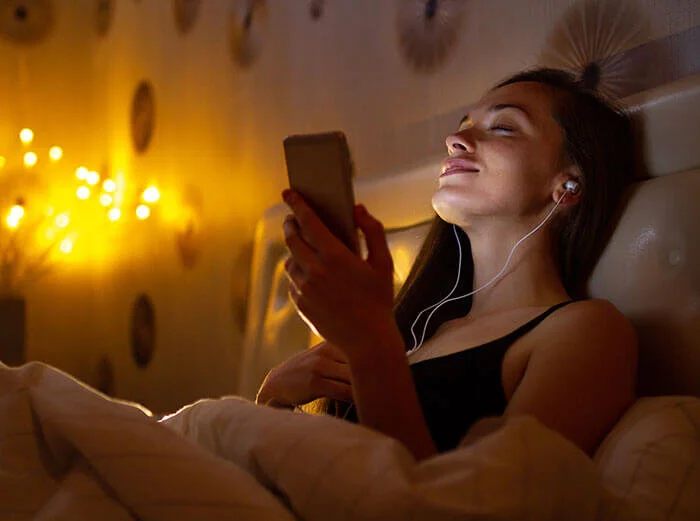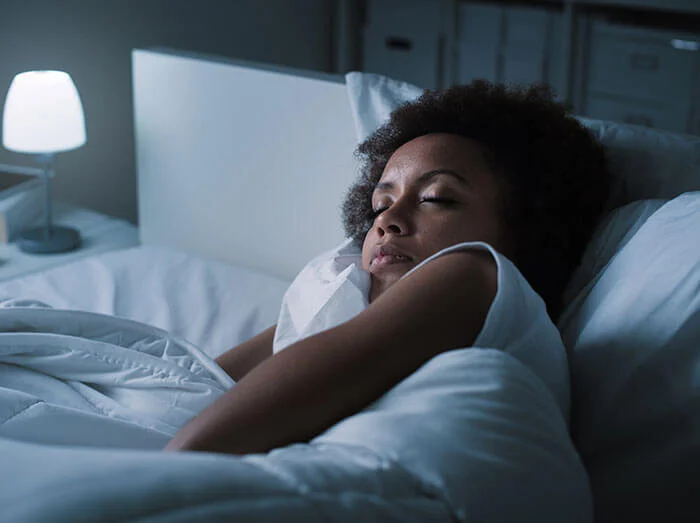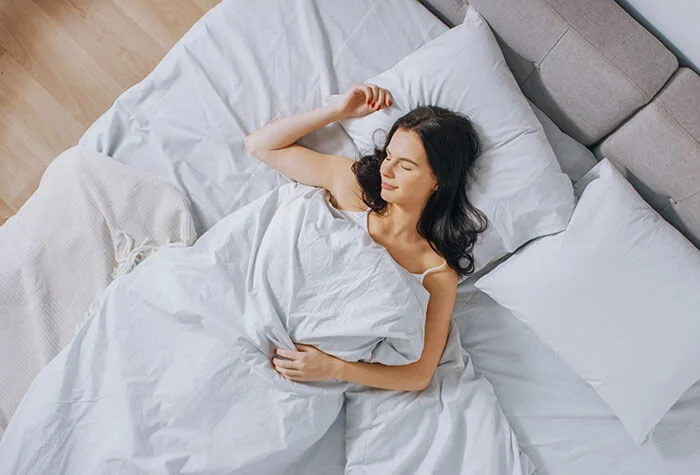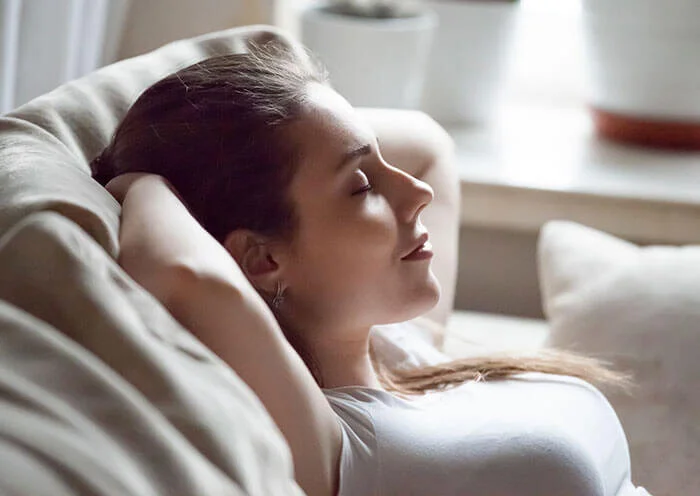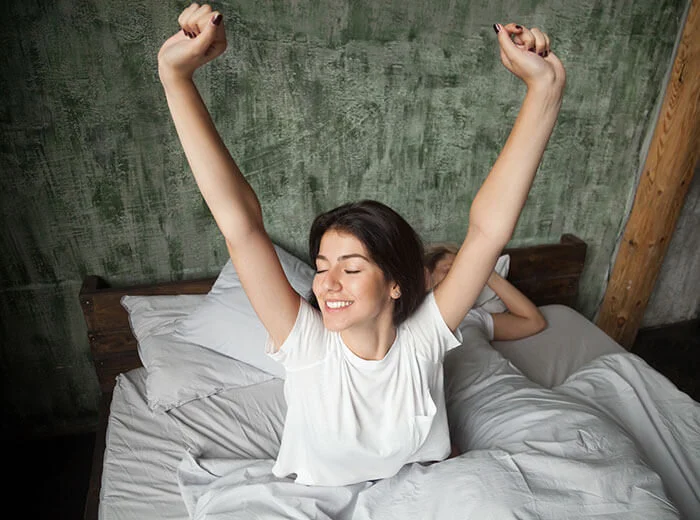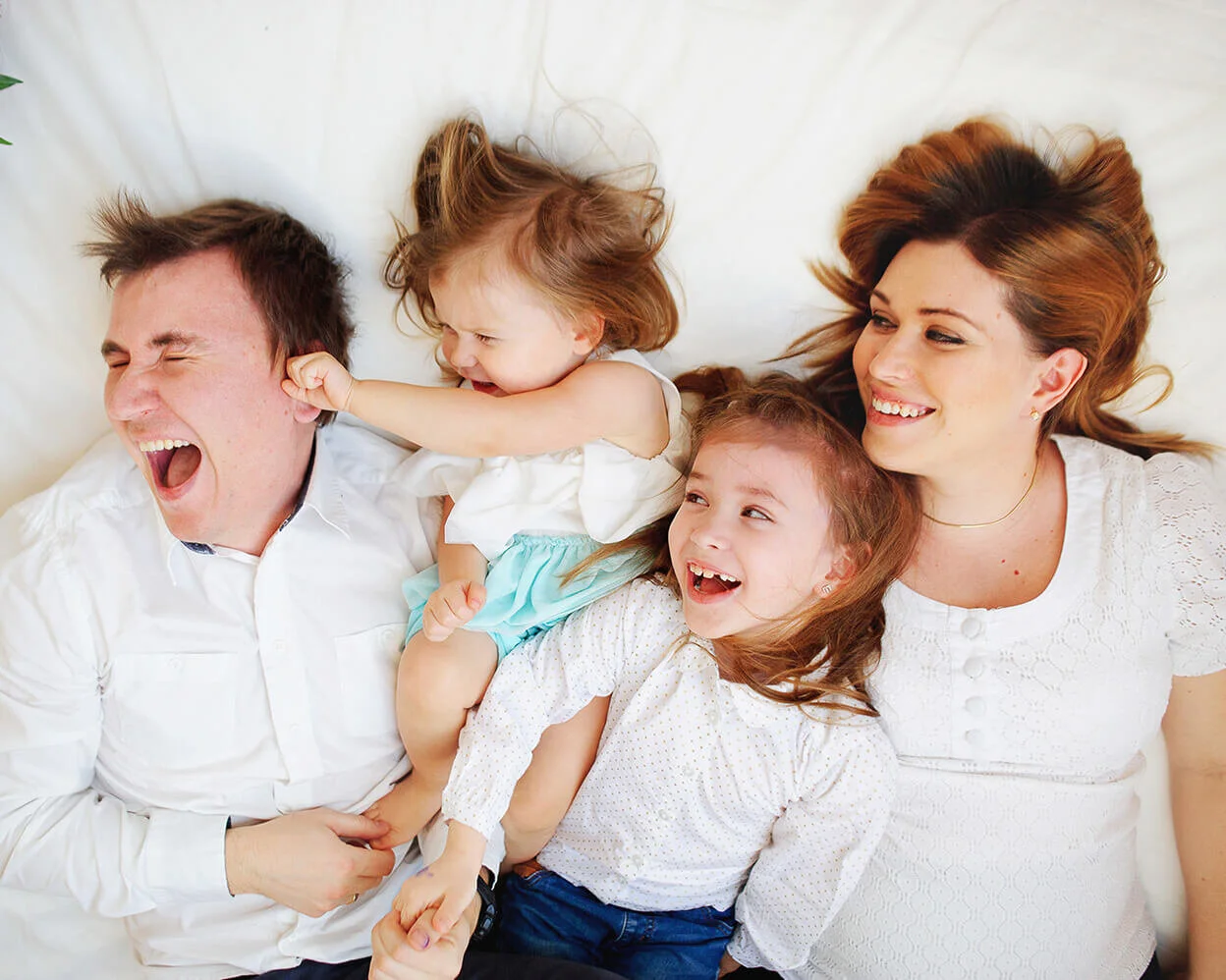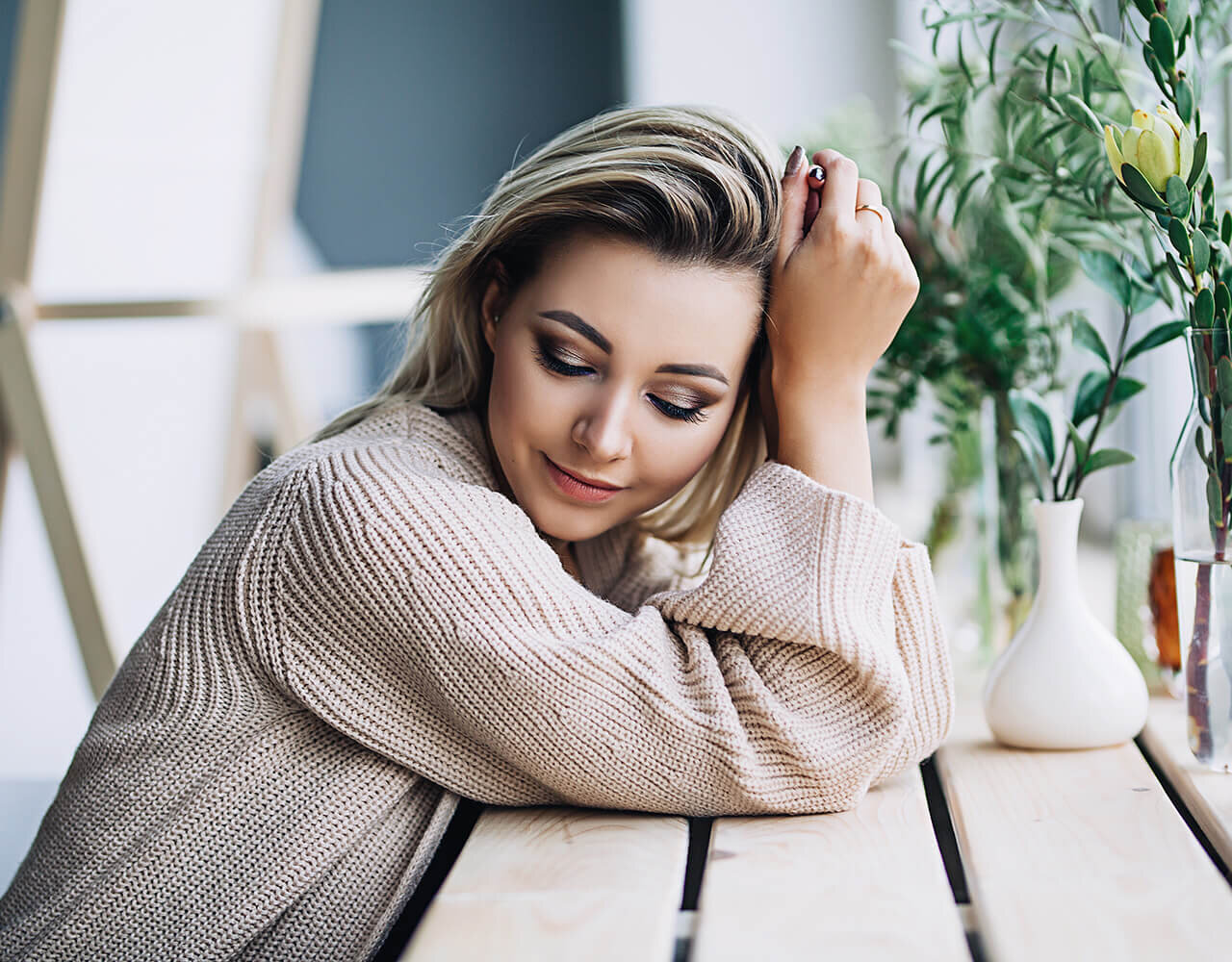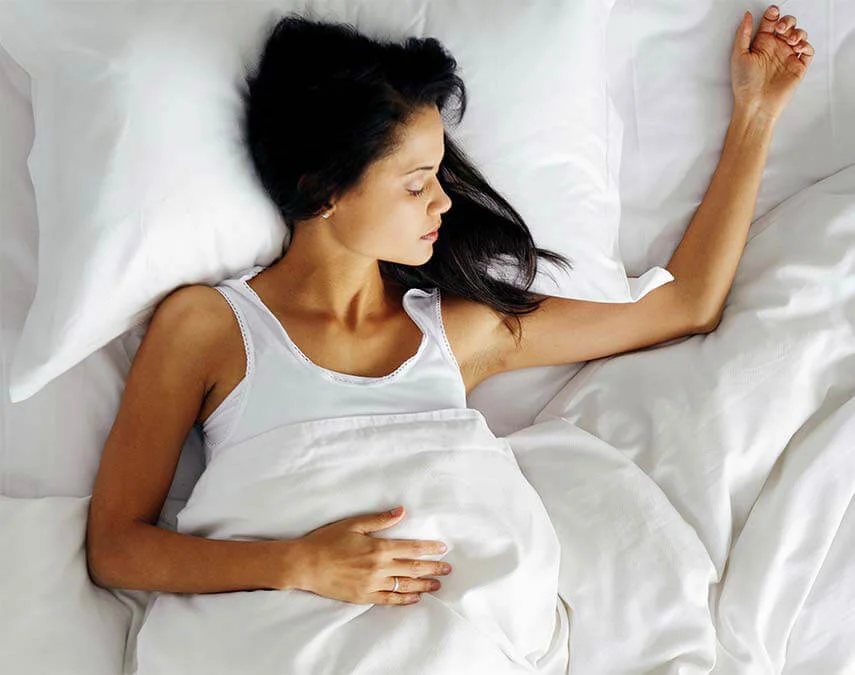Best Times To Sleep and Wake Up
Improve Your Sleep Schedule By Getting The Proper Amount Of Sleep
Benjamin Franklin famously said, “Early to bed, early to rise, makes a man healthy, wealthy, and wise.” While the sentiment holds value, achieving quality sleep in today’s hyper-connected world is more challenging than ever.
Studies show that over 30% of adults struggle to get enough sleep regularly due to stress, demanding schedules, or the constant presence of technology.
If you’re part of this sleep-deprived group, you may wonder how to reset your sleep schedule to feel more refreshed and energized. The truth is, your natural sleep patterns—whether you're an early bird or a night owl—play a big role, but modern life often forces night owls to adapt to early starts.
Most adults need around 7-8 hours of sleep, though genetics can influence whether you require more or less. So, when is the ideal time to sleep and wake up? And does going to bed at 10 p.m. truly have an edge over staying up until 2 a.m.?
The answers might surprise you. Let’s dive in.
Best Time To Go To Sleep
Best Time To Go To Sleep
Generally speaking, the body and brain start slowing down as it gets darker. Generally speaking, the best time to go to bed is between 8 pm and midnight as that is when your body has the opportunity to get all the non-REM and REM sleep needed to function optimally.
Not only does going to bed when it’s dark make it easier to fall asleep, but it also matches our biological tendencies to change sleep patterns based on the sun. You might even find yourself naturally getting sleepy when the sun sets.
So does the actual time you go to sleep affect your body? Studies are a bit conflicting. Some suggest that people who go to bed later were more likely to experience depressive symptoms as well as higher levels of negative thinking.
Sleep duration could also contribute to these symptoms as those who went to bed later also tended to get less sleep. There have been studies that showed a correlation between sleep deprivation and the emergence of depression in individuals.
More important than the time you go to sleep seems to be the consistency of your sleep schedule. Researchers found that irregular sleep patterns were associated with poorer performance and productivity. While the research focused on a small sample group, in general, the study found that participants who went to sleep and woke up at the same time each night were more productive. So, in theory, you could go to bed at 2 am and wake up at 9 am and you should be fine, so long as you consistently do the same thing.
Good Sleep Schedules Help Improve Sleep Quality
So what time should you go to bed? That all depends on your genetics. If you’re a night owl and you don’t feel sleepy until later, you shouldn’t try to force yourself to go to bed earlier. You’ll probably end up tossing and turning and not getting a good night’s sleep.
If you want to pinpoint the exact time you should go to bed, work backward from when you need to wake up and then subtract 7-8 hours with an additional 15-20 minutes to account for actually falling asleep. Stick to this habit and you’ll soon find yourself waking up before your alarm goes off.
Best Time To Wake Up
Like the best time to go to sleep on your new organic mattress, the best time to wake is entirely based on you and your needs. You should already know about how long it takes to get ready for work as well as the approximate amount of time it takes you to get to work.
If you need 2 hours, then you should wake up at least 2 hours before you go to work. If anything, you should try to give yourself an additional 30 minutes so that you don’t feel rushed when leaving the house. The more in control you are of your time, the better you will feel at work.
When choosing what time to wake up, you should also consider other tasks you want to do in the morning. Maybe that’s getting in a quick workout or being able to eat a leisurely breakfast. Figure out what is important to you when it comes to your mornings.
The most important thing to do is to wake up the second your alarm goes off. No hitting the snooze button. It will be tough in the beginning, but as your body begins to adjust to your schedule, you’ll find yourself waking up naturally after a few weeks.
Sleep Requirements By Age
Sleep Tips: Sleep Requirements By Age
The amount of sleep you need will vary depending on your age. In general, younger people need more sleep than adults. With that said, the amount of sleep you need will depend on your genetics though most adults fall into two categories: short sleepers and long sleepers. Short sleepers can function properly despite getting less than the recommended amount of sleep (around 7 hours). On the other hand, long sleepers need more than the average recommended hours of sleep (above nine hours) to feel well-rested. If you’re recovering from sleep debt, you might want to try and get more than 9 hours of sleep at least for a few weeks. From there, you can start trying to figure out what category you fall under.
While sleep requirements vary by the individual, the National Sleep Foundation recommends the following guidelines based on age:
Newborns (0 to 3 months) - 14 to 17 hours including naps
Infants (4 to 11 months) - 12 to 15 hours including naps
Toddlers (12 to 35 months) - 11 to 14 hours including naps
Preschoolers (3 to 5 years) - 10-13 hours
School-aged children (6 to 13 years) 9-11 hours
Teenagers (14-17 years) - 8-10 hours
Younger adults (18-25 years) - 7-9 hours
Adults (26-64) - 7-9 hours
Older adults (65 and over) - 7-8 hours
Sleep Duration Guidelines
Again, these are just guidelines and suggestions. You should try to figure out how many hours work best for you. If you’re not sure how much sleep you need, you should track the number of hours you sleep a day and then make note of how you feel when you wake up. You should reevaluate your sleep routine if you notice that you’re feeling tired in the morning, drowsy during the day, and/or rely on caffeinated beverages to function. Surprisingly, if you get too much sleep you might experience the same issues such as drowsiness and lack of focus. Like under sleeping, oversleeping can lead to health issues such as depression, higher risk of diabetes, increased risk of heart disease, and cognitive impairment.
Sleep Cycle
The sleep cycle, also known as your circadian rhythm, is an internal system that combines external conditions such as light, personal behaviors, lifestyle choices, and internal conditions. When the sun sets, your body produces melatonin - a hormone that makes your feel drowsy. Things like smartphones and TVs, however, can inhibit the release of melatonin as the blue light that emanates from them mimics sunlight, thus making our brain and body think that it’s still daytime.
What is the Sleep Cycle?
Once you do fall asleep, your body goes through two states: REM sleep and non-REM. Your body moves through these states about every 90 minutes and as the cycle continues the non-REM stages get lighter while the REM stages last longer. Ideally, you’ll want your body to go through four or five cycles a night waking up when sleep is lightest may help you feel more refreshed. If your alarm goes off during a deeper stage of sleep, you may feel groggy.
Other reasons why you might not feel rested when you wake is that you’re not getting quality sleep. Issues such as sleep apnea can interrupt your NREM and REM sleep to the point where you won’t feel rested no matter how much sleep you get. Other times, certain medications could prevent you from getting a good night’s sleep. Drinking can also affect your sleep quality. While it might help you sleep during the first half of the night, you’ll often wake up on and off for the remainder of the night as the effects of alcohol wear off.
Setting a Bedtime
Sleep and Wake Up Times Depends On Setting The Right Bedtime
Once you’ve figured out what time you need to wake up and what time you should go to bed to get the necessary amount of sleep, it’s time to set a good bedtime routine. Like following any routine, it’s important to make gradual adjustments instead of suddenly trying to go to sleep 3 hours earlier than you normally would. So if you’re trying to go to sleep at 10 pm instead of midnight, for the first few nights try to go to bed 15 minutes earlier. After that move it up another 15 minutes and so on until you reach your goal. My working in small increments your body will have an easier time adjusting.
Once you’ve set your bedtime, you should make sure to follow it consistently even on the weekends. You should also set up a relaxing routine to get your body ready for sleep. Focus on activities that will signify the end of the day such as taking a shower, listening to some relaxing music, reading a soothing book, doing some meditation, etc. This should go without saying, but you should avoid ingesting stimulants like coffee several hours before bed. If a warm drink helps your body relax, replace the coffee with some tea or even warm milk.
There are several other tips you should follow for resetting your sleep schedule:
Avoid naps. Yes, even if you’re tired. Napping can interfere with your sleep schedule and can keep you up later in the evening. When you feel sleepy exercise instead of napping.
Don’t sleep in. Consistency is key to a good sleep schedule. While it’s tempting to sleep in on the weekends your brain doesn’t actually understand the idea of weekends or time zones. That’s what throws your body out of sync. Set your internal alarm clock to the same time every day.
Keep your schedule. Once you’ve reached a workable bedtime and wake up time, stick to it. One late night can ruin your progress, especially in the beginning.
Avoid exposure to light. Exposure to evening light can shift your body clock to a later schedule. If you can, dim the lights around your house when it gets later and try to avoid bright lights close to bedtime. During the day, you should expose yourself to sunlight to wake up your body.
Avoid exercising or eating too close to bedtime. Exercise can wake you up and lying down soon after eating can lead to heartburn. You should avoid doing either at least three hours before you go to bed.
Disconnect. It’s all too easy to scroll through social media posts, watch a TV show, or check work emails before bed. Stop. The blue light from your TV, phone, and tablet can actually trick your brain into thinking it’s daytime, thus inhibiting the release of the hormone melatonin. Plus, things like checking work emails can lead to stress, which can make it harder for you to fall asleep. At least one hour before bed, turn off all of your devices and instead focus on relaxing your body and mind.
Ultimately The Best Times To Sleep and Wake Up Depends On You
Ultimately, the best time to sleep and wake up depends on you. If your work starts at 9 am and you need two hours to eat, get ready, and travel to work, then you’ll need to wake up at 7 am. From there, you can figure out what time you should go to bed based on your needs. Maybe you’re okay with less than 7 hours of sleep or maybe you need more. Everything is customizable based on your requirements. The hardest part is sticking to a consistent schedule and not straying from it. That means no more staying up until 2 am and sleeping in on the weekends.
While everyone’s sleep schedule will vary, if you are struggling to fall or stay asleep throughout the night, you should see your doctor. There may be an underlying cause such as sleep apnea or other health issues. If you are taking medication, you should check to see if the side effects include trouble sleeping and then ask your doctor if there’s another option.
Jessica Lauren is Founder, contributing Author and Owner of Citrus Sleep. Citrus Sleep is an online publication that highlights brands, sleep products, women’s fashion, subscription services and ideas creating positive social change and promoting a healthy lifestyle. After spending nearly a decade working in PR and marketing for several brands and startups, Jessica knows what truly drives conversions, sold-out launches and guest posts.
Follow Jessica at @jessicalaurencs | Jessica Lauren


